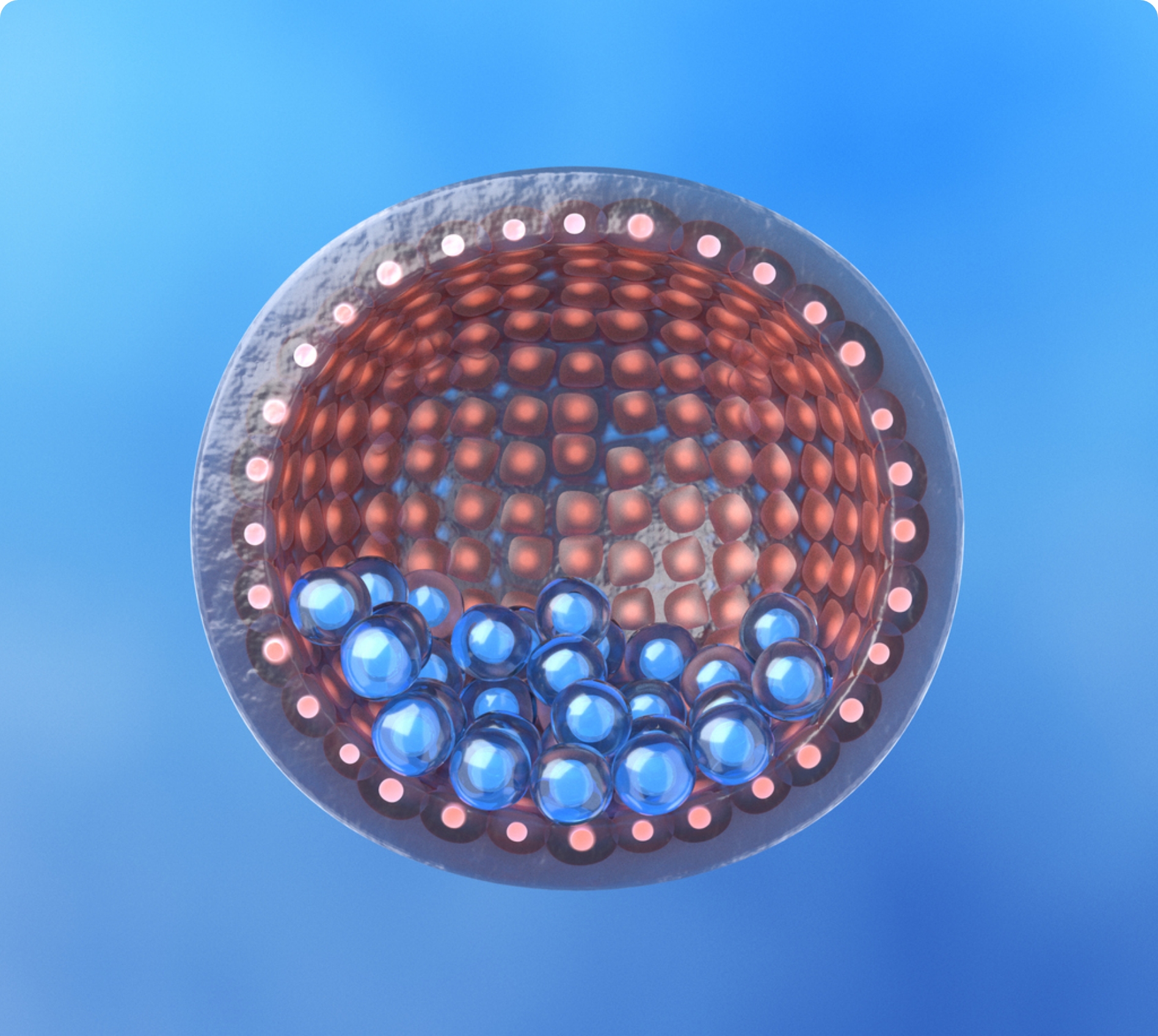Improved Pregnancy Rates
On average, close to one-half of all embryos are chromosomally abnormal. By culturing these embryos for an additional 2 to 3 days, more chromosomally normal embryos will be selected out naturally and develop to the blastocyst (5-day-old) stage in the laboratory. Only the better quality embryos have the ability to grow to the blastocyst stage and therefore the pregnancy rate per transferred embryo is better than for 3-day-old embryos.
In natural conception, fertilized eggs do not enter the uterus until five days after fertilization. Allowing the embryos to reach the blastocyst stage mimics natural conception, and some reports suggest that blastocyst transfer may be helpful for some women with multiple failed cycles.

Risks
Blastocyst transfers increase the likelihood of pregnancy, but there is an increased risk of identical twins. If more than one blastocyst is transferred there is the possibility of triplets, where both blastocysts implant and one of those blastocysts splits. Identical twins have an increased chance of obstetrical complications compared to non-identical twins. However, blastocyst transfer also allows the option of single embryo transfer.
A single embryo transfer minimizes the chance of twins, which is particularly important when twins would be more risky, such as with a misshapen uterus due to certain uterine abnormalities. Any couple wishing to avoid the chance of twins for any reason may choose single blastocyst transfer. Another advantage of developing all embryos to the blastocyst stage is that it makes embryo cryopreservation (freezing) more efficient, since embryos without the capacity for full development are not frozen.

Let’s Take the Next Step Together
Our skilled fertility specialists are here to help. Contact us today and let’s discuss the next phase of your fertility journey.

